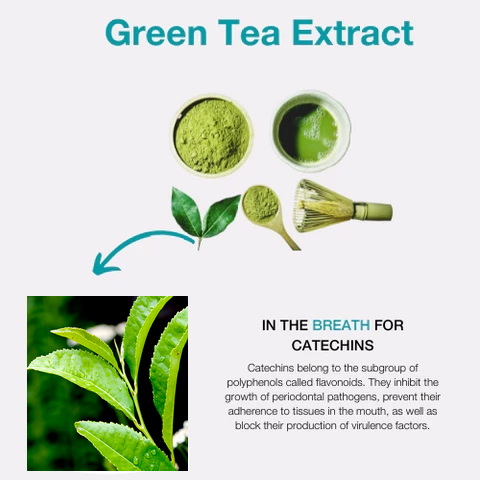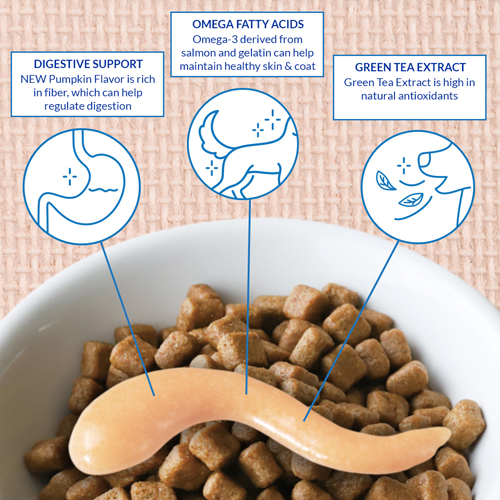Content Menu
● What is Green Tea Extract?
● Potential Benefits of Green Tea Extract for Dogs
>> Antioxidant Properties
>> Dental Health
>> Anti-Inflammatory Effects
>> Weight Management
>> Potential Cancer-Fighting Properties
● Concerns and Risks Associated with Green Tea Extract
>> Liver Toxicity
>> Caffeine Sensitivity
>> Interaction with Medications
>> Gastrointestinal Upset
● Expert Opinions and Research Findings
● Current Use in Commercial Dog Food
● Guidelines for Safe Use
● Alternative Natural Supplements
● Conclusion
● FAQ
>> 1. How much green tea extract is safe for dogs?
>> 2. Can green tea extract help with my dog's bad breath?
>> 3. Is green tea extract better than giving my dog actual green tea?
>> 4. Are there any dogs that should absolutely avoid green tea extract?
>> 5. How can I tell if my dog is having a negative reaction to green tea extract?
● Citations:
Green tea extract has become an increasingly popular ingredient in dog food and supplements, touted for its potential health benefits. However, pet owners and veterinarians alike have raised concerns about its safety. This article will explore the pros and cons of green tea extract in dog food, examining scientific evidence and expert opinions to help you make an informed decision about your furry friend's diet.

What is Green Tea Extract?
Green tea extract is derived from the leaves of the Camellia sinensis plant, the same source as green tea beverages. It contains concentrated forms of beneficial compounds found in green tea, particularly catechins, which are potent antioxidants[1]. The most abundant and well-studied catechin in green tea is epigallocatechin gallate (EGCG).
Potential Benefits of Green Tea Extract for Dogs
Proponents of green tea extract in dog food cite several potential health benefits:
Antioxidant Properties
The antioxidants in green tea extract may help protect cells from damage caused by free radicals, potentially reducing the risk of certain diseases and supporting overall health[1][2].
Dental Health
Some studies suggest that green tea extract may help reduce plaque buildup and improve oral health in dogs. In one study, dogs given organic matcha green tea daily experienced a 37% reduction in plaque buildup in just 14 days[7].
Anti-Inflammatory Effects
The anti-inflammatory properties of green tea extract may help alleviate symptoms of various conditions, including arthritis and skin irritations[7].
Weight Management
Green tea extract may support weight management by boosting metabolism and fat oxidation[2].
Potential Cancer-Fighting Properties
Some research indicates that green tea extract may have cancer-fighting properties, although more studies are needed to confirm its efficacy in dogs[7].
Concerns and Risks Associated with Green Tea Extract
Despite its potential benefits, there are significant concerns about the safety of green tea extract for dogs:
Liver Toxicity
A 2011 study revealed that green tea extracts can cause severe liver, gastrointestinal, and renal toxicities in fasted dogs[3]. This study was so concerning that it was stopped early due to mortality rates among the beagles involved.
Caffeine Sensitivity
Dogs are more sensitive to caffeine than humans. While green tea extract contains less caffeine than black tea, it still poses a risk of caffeine toxicity if consumed in large amounts[2].
Interaction with Medications
Green tea extract may interact with certain medications, potentially altering their effectiveness or causing adverse reactions[1].
Gastrointestinal Upset
Some dogs may experience stomach upset, including vomiting and diarrhea, when consuming green tea extract[1].

Expert Opinions and Research Findings
Veterinary professionals and researchers have varying opinions on the use of green tea extract in dog food:
Dr. Peter Dobias, a veterinarian, warns against the use of green tea extract in dog supplements, citing the 2011 study that showed toxicity in fasted dogs[3].
On the other hand, some studies have shown potential benefits. For example, a study on obese dogs found that green tea supplementation improved insulin sensitivity after 12 weeks[5].
Current Use in Commercial Dog Food
Despite the concerns, green tea extract is found in a significant number of commercial dog food products. According to a survey, green tea extract is included in 9.7% of dry dog food recipes and less than 1% of wet dog food recipes[4].
Guidelines for Safe Use
If you're considering giving your dog food or treats containing green tea extract, keep these guidelines in mind:
1. Always consult with your veterinarian before introducing green tea extract into your dog's diet.
2. Never give green tea extract to a fasting dog.
3. Start with small amounts and monitor your dog for any adverse reactions.
4. Choose high-quality, reputable brands that use safe levels of green tea extract.
5. Be aware of the total caffeine content in your dog's diet, including treats and supplements.
Alternative Natural Supplements
If you're hesitant about using green tea extract, consider these alternative natural supplements that may offer similar benefits:
- Omega-3 fatty acids for anti-inflammatory effects
- Probiotics for digestive health
- Glucosamine and chondroitin for joint health
- Coconut oil for skin and coat health
Conclusion
While green tea extract may offer potential health benefits for dogs, the risks associated with its use cannot be ignored. The 2011 study showing severe toxicity in fasted dogs is particularly concerning. However, when used in appropriate amounts and given with food, green tea extract may be safe for some dogs.
Ultimately, the decision to include green tea extract in your dog's diet should be made in consultation with your veterinarian. They can help you weigh the potential benefits against the risks, taking into account your dog's individual health status and needs.
As with any dietary supplement, it's crucial to prioritize your dog's overall health and well-being. A balanced diet, regular exercise, and routine veterinary care remain the cornerstones of canine health.

FAQ
1. How much green tea extract is safe for dogs?
The safe dosage of green tea extract for dogs is not well-established. Some studies suggest that a daily intake of up to 0.8g of EGCG (the main component of green tea extract) is safe for a 45-pound dog[7]. However, it's crucial to consult with your veterinarian for personalized advice.
2. Can green tea extract help with my dog's bad breath?
Green tea extract may help improve oral health and freshen breath in dogs. Some studies have shown a reduction in plaque buildup and improvement in oral health when dogs are given green tea regularly[7]. However, it should not replace proper dental care and regular check-ups.
3. Is green tea extract better than giving my dog actual green tea?
Green tea extract is more concentrated than brewed green tea, which means it can provide more potent effects but also carries a higher risk of side effects. Brewed green tea may be a safer option, but should still be given in moderation and only after consulting with your vet.
4. Are there any dogs that should absolutely avoid green tea extract?
Dogs with liver problems, caffeine sensitivity, or those taking certain medications should avoid green tea extract. Pregnant or nursing dogs, and puppies, should also not be given green tea extract without veterinary approval.
5. How can I tell if my dog is having a negative reaction to green tea extract?
Signs of a negative reaction may include vomiting, diarrhea, loss of appetite, increased thirst or urination, restlessness, or signs of liver problems such as yellowing of the eyes or gums. If you notice any of these symptoms, discontinue use and consult your veterinarian immediately.
Citations:
[1] https://www.meetmaev.com/compare/ingredients/green-tea-extract
[2] https://www.thedogbakery.com/blogs/news/is-green-tea-safe-for-dogs-everything-you-need-to-know-about-this-miracle-drink
[3] https://peterdobias.com/blogs/blog/is-green-tea-toxic-to-dogs
[4] https://www.petfoodindustry.com/nutrition/article/15464636/green-tea-extract-use-in-dog-and-cat-food
[5] https://www.dogster.com/dog-nutrition/can-dogs-have-green-tea
[6] https://www.poodleforum.com/threads/green-tea-extract-in-dog-treats.229569/
[7] https://matcha.com/blogs/news/matcha-and-pets-is-matcha-safe-for-pets
[8] https://www.youtube.com/watch?v=LTDHhWrt3gQ






























